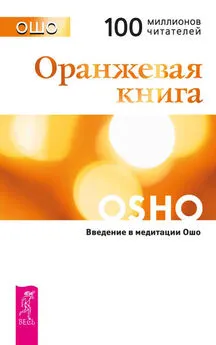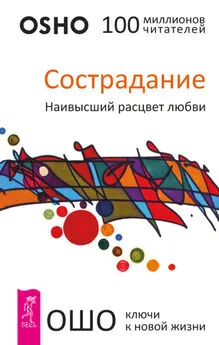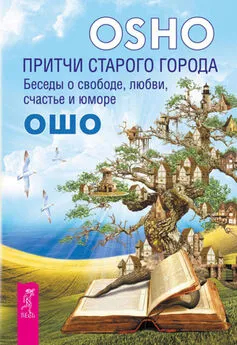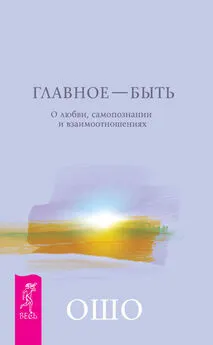Бхагаван Раджниш (Ошо) - Послания любви. 365 писем Ошо
- Название:Послания любви. 365 писем Ошо
- Автор:
- Жанр:
- Издательство:Array Литагент «Весь»
- Год:2012
- Город:СПб
- ISBN:978-5-9573-2446-1
- Рейтинг:
- Избранное:Добавить в избранное
-
Отзывы:
-
Ваша оценка:
Бхагаван Раджниш (Ошо) - Послания любви. 365 писем Ошо краткое содержание
Речь Ошо необыкновенно поэтична. Чтобы читатель прочувствовал ритм и неповторимый стиль великого мастера, в книге, помимо перевода, приведен оригинальный английский текст. Исполненные тепла и любви, где каждая фраза наполнена глубоким смыслом, эти письма будут вашим другом и помощником в познании себя.
«Суть не в том, что вы слушаете, но как вы слушаете – потому что послание повсюду, повсюду, повсюду» (ОШО).
Ранее книга выходила под названием «Чашка чая. 365 писем Ошо».
Послания любви. 365 писем Ошо - читать онлайн бесплатно ознакомительный отрывок
Интервал:
Закладка:
because it is cultivated by the past.
In other words, change is from this to that ,
it is a movement in the known.
But mutation is an explosion:
from this to nothingness,
from here to nowhere.
You cannot practice it –
on the contrary, you are the only hindrance .
So what is to be done?
Really nothing can be done.
Be aware of this helplessness,
and remain in this helplessness.
Do not do anything
because any doing will be escaping
from this fact of helplessness.
Do not move at all –
and then there is an explosion,
and then there is mutation.
186. Love.
Religion is not a promise for the future
but an experience here and now .
But through the priesthood it has become
promises and promises and promises.
At an examination of a class in First Aid
a member, who was also a priest, was asked:
What would you do if you found a man in a
fainting condition?
I would give him some brandy, was the answer.
And if there was no brandy? he was then asked.
I would promise him some, replied the priest.
187. Love.
Wherever there are words there is no real meaning.
But here also are words.
Then what to do?
Read between the words .
Or read that which is said but not written,
or that which is shown and not even said,
or that which is meant and not even shown.
That is – look in ,
because the words are without
but the meaning is within.
188. Love.
Reason is not enough;
it is necessary but not enough.
The beyond must be remembered – and always,
because reason in itself is destructive;
alone, it is nothing but an implement to dissect.
It makes a man anti-all and pro-nothing.
It creates absolutely negative minds
which can criticize but cannot create,
because reason has no healing force within itself.
It is only a tiny part and not the whole of life,
and the healing force is always with the whole .
189. Love.
With thought the mind has boundaries
but without thought the mind is just infinite space .
That is why in thoughtless awareness
one stops being a drop
and becomes oceanic.
And then there is great energy.
This energy wipes out everything which is dead.
It wipes out the whole karmic past –
and with no effort at all.
The greater absorbs the lesser and remains untouched.
190. Love.
The will to wholeness is inherent in everything,
but only in man has it become conscious.
Therefore man lives in tension,
and only when this longing is fulfilled
is his negative state of tension erased.
The tension is symbolic of the infinite potential
and also of the infinite possibilities.
Man is not what he can be,
and unless he is that which he can be
he cannot be at ease.
This dis-ease is man,
and health is in wholeness.
The fact that language has one root
for the words whole, holy and to heal
conceals a deep truth:
He who is whole is also healed,
and to be healed is to be whole.
This wholeness can only be achieved
by becoming totally conscious of oneself:
The darkness of the unconscious is to be penetrated
and transformed into light.
And meditation is the method.
191. Love.
The new world revealed in meditation
is not something added from the outside.
It has always been there – within,
is in being itself.
It is being itself.
One may know it or not, but it is there –
as a seed, of course, as a potentiality.
One has to make it actual, that is all.
That is why when it is revealed,
when it flowers,
one laughs uproariously
because it has always been there and one never knew it.
To work towards meditation is just like sculpturing
because as the sculptor chisels out a figure
deeply buried in a mass of inert matter,
so the meditator transforms his own inert potentialities
into living, dynamic and conscious creations.
Of course, here
the creator and the creation and the means of creation
are not different but one
because the meditator himself is all.
And that is why I call meditation the greatest art.
192. Love.
Do not think of others and waste your time;
really, that is a subtle and cunning way of the mind
to escape from itself.
Once a monk asked Ummon:
Sir, you always say that Buddhism helps us in
every possible way,
but how can it help the blind, the deaf or the dumb?
The blind cannot see the teacher’s staff
that is raised before them,
the deaf cannot hear the teacher’s words, no matter how wise,
the dumb cannot ask their questions or speak
their understanding:
so since we cannot help these people
how can we say that Buddhism helps in every possible way?
What good is it?
Ummon just remained silent for a while
and then abruptly poked at the questioner with his stick.
The monk of course jumped back.
Ah! said Ummon. I see you are not blind!
Then he told the monk to come forward, which he did.
Ah-ha! said Ummon. I see you are not deaf!
Then he asked the monk
if he understood what all this to-do was about.
The monk said he did not.
Ah-ha! said Ummon. I see you are not dumb!
193. Love.
Meditation does not require any application of the mind
or use of effort.
It descends upon you as effortlessly as sleep.
You cannot try to sleep,
nor can you try to meditate.
On the contrary,
every effort hinders its smooth and silent coming.
There is no place in it for action or aggression –
and action is always aggressive.
Meditation is passive receptivity.
Mind is aggressive,
meditation is passive.
Be passive
and receptive
and open
and vulnerable
and wait .
The real miracle happens through waiting.
The moment that waiting is total
there is a happening ,
and – the explosion .
194. Love.
The problem of life is not philosophical,
it is existential.
You cannot solve it from the outside;
you cannot just be a spectator of it –
you are in it, you are it .
And moreover, what is philosophy?
At the worst a linguistic misunderstanding,
or at best a linguistic analysis.
And even at its best it leads nowhere
because the problem is existential
and it cannot be solved through
language analysis and grammar.
One dark night a dervish was passing a dry well
when he heard a cry for help from below.
What is the matter? he called down.
I am a grammarian,
and I have unfortunately fallen,
due to my ignorance of the path, into this deep well,
in which I am now all but immobilized,
responded the other.
Hold on, friend, and I’ll fetch a ladder and a rope, said the dervish.
One moment please! said the grammarian.
Your grammar and diction are faulty.
Be good enough to amend them. If that is so much more important
than the essentials, shouted the dervish, you had best stay where you are
until I have learned to speak properly.
And he went his way.
195. Love.
Don’t think about surrender at all
because that which thinks about it is the only barrier .
And therefore no one can surrender;
it is not a doing at all, it happens.
You cannot go to it,
it comes to you.
And any effort on your part will hinder its coming.
Be open and effortless, relaxed and passive,
and it will come – it always comes.
I am a witness of it.
196. Love.
Mulla Nasruddin was searching for something on the ground.
What have you lost, Mulla? someone who saw him searching, asked.
My key, said the Mulla. So they both went down on their knees
and looked for it.
After a time the other man asked: Where exactly did you drop it?
In my house, said the Mulla.
Then why are you looking here?
There is more light here than inside my house.
I ask you also – where are you looking for the key?
Inside the house?
Or out there, where there is more light?
197. Love.
There is no end to man’s self-deception, because whatsoever he is
going to do he can rationalize it.
One day one man boasted in the bar
that he was a man of iron will ,
and now he would prove it
by not touching wine again in his life.
But not even that day could pass by.
In the evening he came to the bar
and said loudly for all to hear –
I am stronger than my willpower.
I fought the whole day and finally conquered
my damn willpower!
A double scotch, please!
198. Love.
The way of meditation is above the self;
its base is surrendering.
Surrender the self to your own no-self;
be as if you are not.
Oh, the benediction
when one just leaves everything to the no-self!
Buddha called this phenomenon anatma or anatta
(no-selfhood).
One must turn oneself into a puppet
in the hands of the no-self,
and then everything begins to flow naturally
and spontaneously
just like a river flowing to the sea
or like a cloud wandering in the sky.
Lao Tzu says this is doing by non-doing .
One ceases to be one’s own master
and becomes an instrument of the unknown –
and what nonsense it is to be one’s own master
because there is no one to be so!
Do not search and you will continue to believe in it.
Search and it is nowhere to be found.
The self exists only in ignorance.
It is ignorance.
In knowing there is no self
because there is no knower.
Then knowing is enough unto itself.
199. Love.
There is conflict in the mind – always,
because the mind cannot exist without the conflict .
It gets strengthened through conflict;
even warring against conflict is conflict
and struggling to go beyond the mind is mind.
See this deeply and immediately
without motive,
just as if you have come across a snake in the street
– and the jump .
Then it is not that you jump
but – the jump .
The jump happens spontaneously,
without effort and without conflict.
When this happens there is no-mind
and no-mind is the door to the divine.
200. Love.
In meditation, enjoy doing nothing .
Be in a state of perfectly quiet passivity –
then you are in harmony with the world.
The thought-forms dissolve automatically
because they cannot exist with total passivity:
they are forms of an activity-addicted mind,
and with them dissolves the ego –
because it cannot exist without thought-forms.
The ego is nothing but a whirlpool center
of constantly revolving thought-forms.
Remain in passivity,
that is, in the state of absolute doing-nothingness ,
and meditation deepens to the depths where there is no meditator.
And remember that only when there is no meditator
has meditation really come into being.
If you are then there is no meditation,
Читать дальшеИнтервал:
Закладка:










